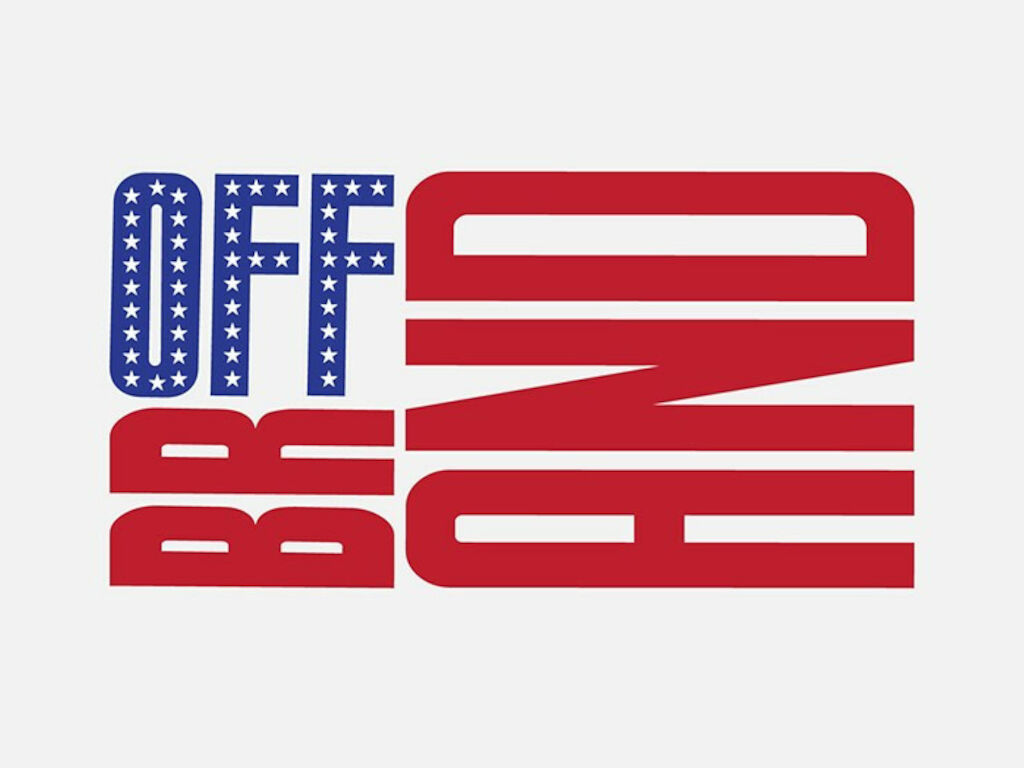Rupali Steinmeyer recently left Berlin to take the role of Managing Director of MetaDesign San Francisco. Her arrival comes at an interesting time in U.S. history, to say the least. In this conversation with Hozy Rossi, she looks at the country past and present from her perspective as a branding expert.
HR: What kind of reaction did you get when you told people you were moving to San Francisco?
RS: So the questions that I got were, “Are you sure you want to go now?” Or, “You can’t be serious that you want to go live there, especially now?” It’s pretty obvious to me that this has to do with the current climate in the U.S. and the unpredictability associated with it.
HR: You say that you think there is this perception now that things are unpredictable in the States. I would assume, then, that in the past we were viewed as a very stable place?
RS: Yes. Let me elaborate. If I were to equate this to my profession, branding, and look at America as a brand, in the past it seemed that America stood for a certain set of ideas, values, and principles, and the whole world could rely on it. And now it’s not like that. I know it’s never as simple as black and white, and there is a lot playing out on the world stage, but certainly I feel there is some truth to this underlying feeling of, Do I really know what America represents today? This is a conversation that I’ve had with a lot of people over the last few months in the context of me moving.
HR: If the United States were a client, and this was a brand perception on the part of people outside of the organization, would you generally think that that’s a positive? Could there be a case made that it’s positive to be unpredictable and that people don’t know what your next move is going to be?
RS: I don’t think so. America as a brand — if it were to have a personality, it would be important to embody a certain set of values, especially because it is so big and has an important role to play in the global context. It should represent, to me, a level of solidity, a level of confidence, of certainty, because in the past, that’s what America stood for. If it’s trying to be disruptive at the level it’s currently perceived as being, I don’t think that’s a positive thing.
Living in the Bay Area, one is always up close with this idea of the disruptor, the innovator, the agile thinker, the flexible entity, etc. America can be all of that, and it is all of that, but I don’t really think that the other stuff — the volatility, the unpredictability — are positive aspects of that personality in the current setup.
HR: So let’s continue the analogy between the United States and a brand. You mentioned that it’s a large entity. If it were a large corporation, and a new CEO came in and was unpredictable and has some of the characteristics that the President has right now, do you think that would suffice to affect the entire company and the brand? You know, the brand has been around for 250 years. You would think that after all that time, and given its size, the brand would stand for something that one person couldn’t change.
RS: I see what you mean. It’s not so much just the CEO but also the inaction of — let’s call it the board of directors and the senior management. If you had a very strong senior management and board of directors, it would provide the necessary level of checks and balances. It would provide another perspective, and that’s not happening right now.
HR: So let’s pretend for a moment. The phone rings, and it’s someone from the White House. They heard what you said. And so, “Rupali, we would like you to come in and retain those things that our supporters think are important yet even out the waters a little.” As a consultant, what kind of program might you envision coming up with?
RS: Well, I think it would require going back to the roots and digging into your DNA. I know it sounds a little cliché, but it’s important to really understand where you come from to know where you can realistically and more importantly, credibly go.
I feel that America is a brand that’s been around for several hundred years, so there are a certain set of ideals and principles that are associated with it. One should be leveraging that, especially in a time like this. You could go back to the things that are really good and working and say we have all of that, which allows us this level of unpredictability and volatility. You need to be able to have that conversation. Right now, it seems like it’s just about doing things differently, just because we need to do it differently, because that got us into the White House in the first place. Governing and getting votes are two different things. It’s the same way that managing an account after you win a pitch is different than just winning it. You might win a new piece of business, but to actually manage that and establish it and make it into a relationship, you need to pull out different areas of expertise for that.
_Hozy Rossi is creative director of MetaDesign San Francisco.
